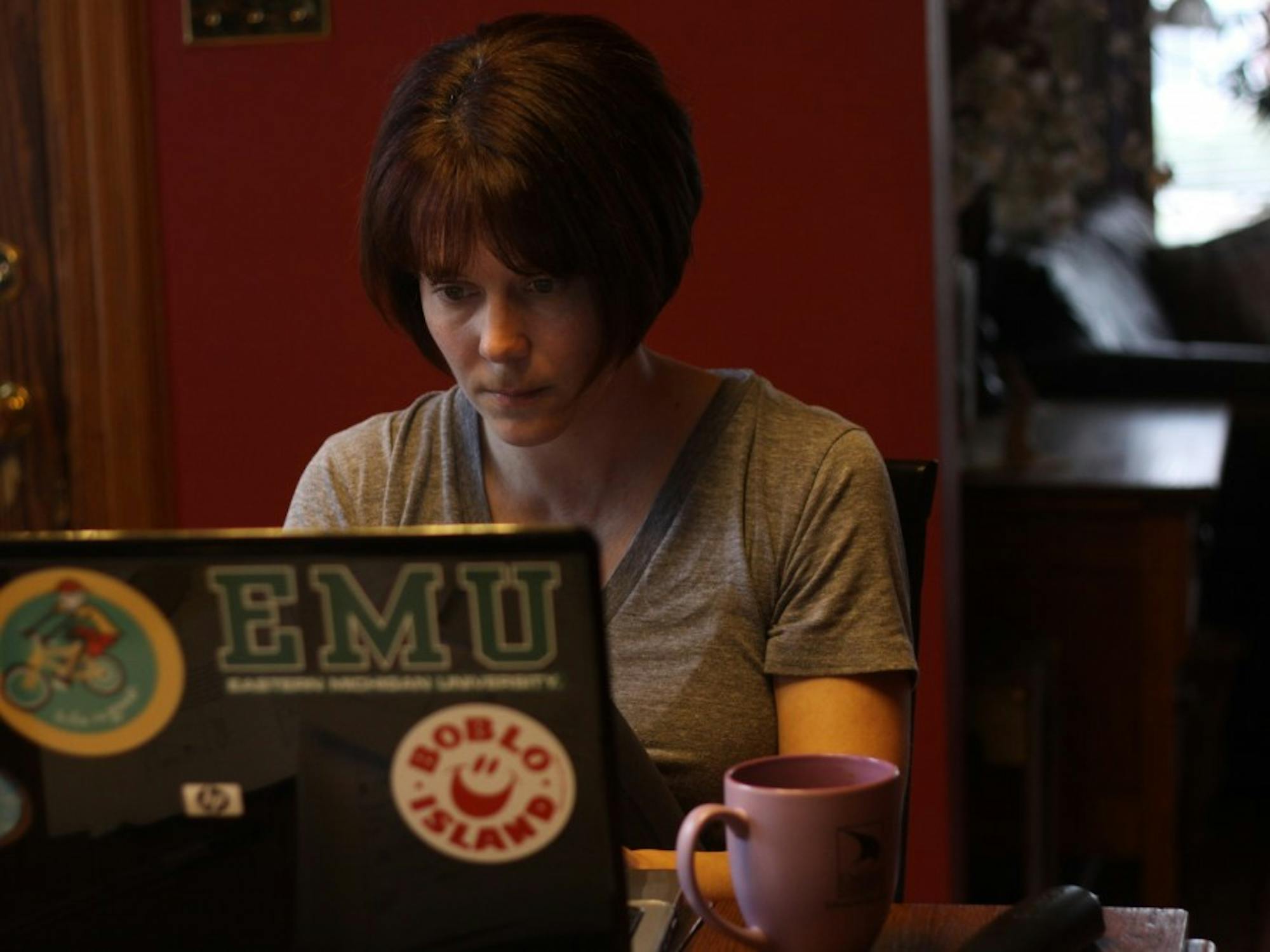A victim of the March 9 data security breach shared her experience with The Eastern Echo and described how her life has been in the aftermath of her family’s personal information being illegally obtained by former student employees in an office responsible for handling pertinent information such as security numbers and tax information.
EMU student Shannon Hulswit said she was not a part of the initial investigation that affected approximately 58 individuals. Hulswit said she learned her children’s information had been obtained and compromised when she attempted to file her 2010 taxes and the IRS rejected them.
“It gave us an error code that said some of the dependents on my claim had already been claimed,” she said. “That was back in the middle of March. Initially, when my tax return had been rejected I didn’t know it was connected to here. I contacted the IRS and it was extremely difficult to figure out what to do. “
“They informed me this was a huge problem,” Hulswit said. “So, after getting that information from the IRS, I had to file a report with the FTC, with my local police department, and contact all three credit bureaus to put up a flag. For an adult, that’s not hard, but for a minor, it’s hard. It was an unbelievably complicated process. It took me hours to get through it.”
Hulswit said the entire process was nerve-racking.
“I can’t begin to tell you what a pain it was,” she said. “By the time the university knew I was part of the security breach, I had already done what I was supposed to do.”
Hulswit said although the university did not realize her family’s information had been compromised, she began to piece things together.
“I had received the first email, then I received the second notification and I connected the dots to what had happened on campus,” she said. “It wasn’t my social security number that was compromised. It was my children’s. ”
Hulswit came forward and replied to the e-mail the university sent out to all of its students.
“I said, ‘hey, I got this e-mail this morning and my social security number was not utilized, but my two dependent children’s were taken,’” she said. “An hour later, I got a phone call from the campus attorney. They really had no way of knowing. The people who they knew for certain were contacted. I was not one of the initial people.”
The university offered her a free year of credit protection from a company, but that doesn’t change the fact her children’s information was compromised, Hulswit said.
“That doesn’t change the fact that it’s going to be a huge pain to file my taxes,” she said. “There’s nothing anyone can do about that. Initially, it took me two full days — two full days to figure it out. It’s not done. It’s not even close to done. They have to file it by hand and I have to wait for no telling how long.”
Although, someone else claimed her children, Hulswit said the IRS told her she will still be able to claim them on her own taxes.
“I still get my refund,” she said. “That money comes back to me.”
Hulswit said she has found an unlikely group of allies.
“I have found the police to be extremely helpful,” she said. “They were very forthcoming with information. I met with someone in the Financial Aid office for a long period of time. When I left, I felt they were going to definitely look into making some changes.”
The IRS has also been extremely helpful, Hulswit said.
“They were extremely helpful,” she said. “It was not at all what I expected. The woman I talked to was very understanding and sympathetic.”
Hulswit said she believes there might be more students affected by it.
“I suspect that there are a lot of students whose parents are probably having this problem and aren’t connecting this problem back to here,” she said. “It might be a much bigger issue than they realize. The number keeps going up. It sounds like there’s a pretty growing number that has been affected.”
The entire ordeal has been distressing for Hulswit because she said it’s impossible to know what people are going to do with her children’s information.
“I’m constantly wondering if someone is going to lease a car or something like that,” she said. “I have one son who is in college, my middle daughter is getting ready to go to college. For me, it’s scary because I wonder if they can’t take out loans or if it will affect their ability to purchase a home.”
“How is this going to affect my children?” Hulswit said. “The other thing that’s really scary is my information is out there, my children’s information is out there. This could go on for who knows how long. Who’s to say they won’t send this information to someone else. Could it really have happened at a worse time? This is not what I need to deal with right now. I’m paying for someone else’s dishonesty.”
About eight years ago, her father had his identity stolen and this situation is a constant reminder of everything her family had to do in the past to restore order to their lives.
“I try not to think about it, but I can’t control it,” she said. “It’s always sitting in the back of your head.”
Hulswit said she is not angry with the university, but instead the people who did this to her.
“I’m angry at the person that did it,” she said. “He owns what he did. People can be mad at the university, but that person is responsible for their actions at the end of the day. I blame the people that did it and the people that purchased the information from them.”
Hulswit said she hopes the university and others learn from this breach.
“If you don’t have to provide your social security number on something, don’t do it,” she said. “Ask them why they need it. I provide my information to people very differently now. This time, my children’s social security number was blocked out.”
I feel like it’s on us to be careful with our numbers, especially when you’re younger,” Hulswit said. “People don’t realize how giant of an issue that can be.”









